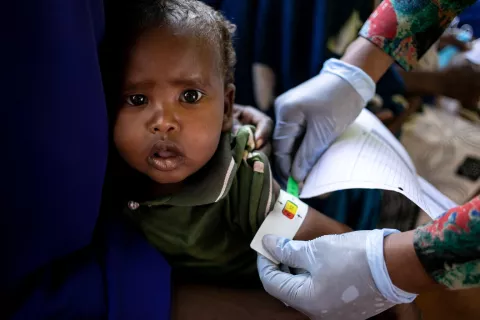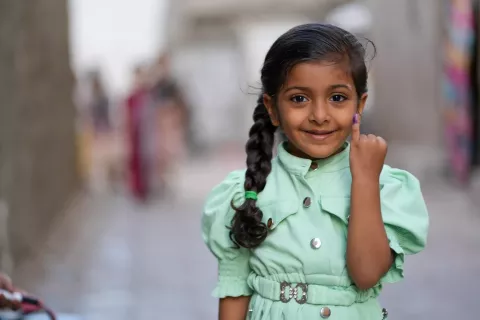UNICEF Gender Policy 2021-2030
A bolder and more ambitious vision for gender equality and the empowerment of all children, adolescents, and women

Highlights
Reducing inequality strengthens economies and builds stable, resilient societies that give all individuals – including boys and men – the opportunity to fulfil their potential.
UNICEF builds partnerships across the global community to accelerate gender equality. In all areas of our work, we integrate strategies that address gender-specific discrimination and disadvantages.
UNICEF’s Gender Policy 2021-2030 (English, Arabic, French) and accompanying Action Plan 2022-2025 articulate UNICEF’s commitments to promoting gender equality across programmes, workplaces and practices around the world.
This means partnering with national health sectors to expand quality maternal care and support the professionalization of the mostly female front-line community health workforce. It means promoting the role of women in the design and delivery of water, sanitation and hygiene (WASH) ecosystems and supporting everyone’s right to clean, quality water and sanitation. And it means working with the education sector to ensure girls and boys of all ages thrive in their learning and find pathways to meaningful employment.
Recognizing that adolescent girls are consistently disadvantaged, especially in situations of crisis and conflict, UNICEF invests in five interlinked programmatic areas:
- adolescent health and nutrition;
- skills building to further their economic empowerment – as entrepreneurs, innovators and leaders;
- protection from violence and child marriage;
- quality menstrual health and hygiene services and disrupting taboos about menstrual health and
- social protection.
Through the monitoring framework, UNICEF will track progress on programmatic and institutional gender results.
In everything we do, we strive to create opportunities for girls’ voice, power and agency.



